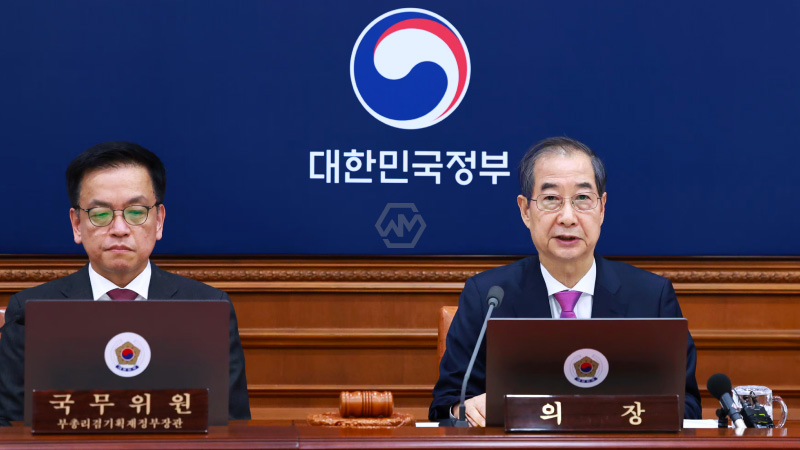- President Yoon Suk Yeol removed from office after martial law declaration.
- Snap presidential election scheduled for June 3, announced by acting leader.
- Opposition’s Lee Jae Myung emerges as early frontrunner in the polls.
The Constitutional Court’s decision to uphold Yoon Suk Yeol’s impeachment marks a dramatic chapter in South Korean politics. His abrupt declaration of martial law in December, citing unproven claims of communist infiltration, drew widespread backlash. This sparked fears of authoritarianism.
Acting President Han Duck-soo has moved swiftly to stabilize the political climate. He announced June 3 as the date for a snap presidential election.
June 3 Presidential Election to Reshape South Korea After Political Turmoil
South Korea’s rapid transition to a new presidential election follows months of deepening political unrest. This unrest was triggered by Yoon Suk Yeol’s controversial declaration of martial law. His actions not only alienated large portions of the public but also caused fractures within his own conservative base. The constitutional process that led to his removal reflects South Korea’s democratic resilience in moments of political crisis.
The upcoming election on June 3 presents an opportunity for both renewal and reckoning. The conservative camp is scrambling for leadership, while the opposition is leveraging momentum. Lee Jae Myung, a seasoned populist from the Democratic Party, has maintained strong grassroots support. He could significantly alter the nation’s foreign and economic policies if elected.
Observers believe the conservative bloc faces an uphill battle. Yoon’s downfall has tainted the party‘s image, and no clear successor has yet emerged to unify its factions. While Kim Moon-soo has entered the race, his ability to rally support across the right remains uncertain. Time is running short for the conservatives to present a cohesive front.
Internationally, the election result will be closely watched. South Korea is a key player in the Indo-Pacific region. Any shift in leadership may influence relations with the U.S., North Korea, and China. The next president will inherit not just domestic challenges but also sensitive geopolitical decisions. These could redefine the country’s strategic posture.
South Korea’s June 3 election is more than a routine political transition. It’s a referendum on leadership, democratic values, and the country’s future direction.
“The people’s trust must never be taken for granted — it is the foundation of every democracy.”



